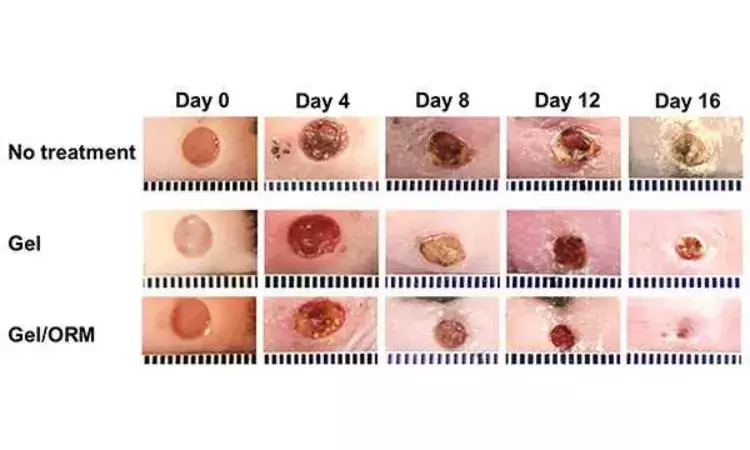- Home
- Medical news & Guidelines
- Anesthesiology
- Cardiology and CTVS
- Critical Care
- Dentistry
- Dermatology
- Diabetes and Endocrinology
- ENT
- Gastroenterology
- Medicine
- Nephrology
- Neurology
- Obstretics-Gynaecology
- Oncology
- Ophthalmology
- Orthopaedics
- Pediatrics-Neonatology
- Psychiatry
- Pulmonology
- Radiology
- Surgery
- Urology
- Laboratory Medicine
- Diet
- Nursing
- Paramedical
- Physiotherapy
- Health news
- Fact Check
- Bone Health Fact Check
- Brain Health Fact Check
- Cancer Related Fact Check
- Child Care Fact Check
- Dental and oral health fact check
- Diabetes and metabolic health fact check
- Diet and Nutrition Fact Check
- Eye and ENT Care Fact Check
- Fitness fact check
- Gut health fact check
- Heart health fact check
- Kidney health fact check
- Medical education fact check
- Men's health fact check
- Respiratory fact check
- Skin and hair care fact check
- Vaccine and Immunization fact check
- Women's health fact check
- AYUSH
- State News
- Andaman and Nicobar Islands
- Andhra Pradesh
- Arunachal Pradesh
- Assam
- Bihar
- Chandigarh
- Chattisgarh
- Dadra and Nagar Haveli
- Daman and Diu
- Delhi
- Goa
- Gujarat
- Haryana
- Himachal Pradesh
- Jammu & Kashmir
- Jharkhand
- Karnataka
- Kerala
- Ladakh
- Lakshadweep
- Madhya Pradesh
- Maharashtra
- Manipur
- Meghalaya
- Mizoram
- Nagaland
- Odisha
- Puducherry
- Punjab
- Rajasthan
- Sikkim
- Tamil Nadu
- Telangana
- Tripura
- Uttar Pradesh
- Uttrakhand
- West Bengal
- Medical Education
- Industry
Researchers develop sustained oxygen-delivering hydrogel that accelerates diabetic wound healing

USA: The delivery of sustained oxygen alone without using drugs can help in healing diabetic wounds, according to a recent study. The researchers developed a hydrogel that delivers oxygen to a wound, which decreases inflammation, helps remodel tissue, and accelerates healing. The research was performed on a mouse model.
The gel was developed by Jianjun Guan, a professor of mechanical engineering & materials science in the McKelvey School of Engineering at Washington University in St. Louis. Ya Guan, a doctoral student, and Hong Niu, a postdoctoral research associate, both in Guan's lab, are co-first authors of the study.
About one-fourth of people with diabetes develop painful foot ulcers, which are slow to heal due to low oxygen in the wound from impaired blood vessels and increased inflammation. These wounds can become chronic, leading to poor quality of life and potential amputation.
Tissues in the body require oxygen to survive and need even more when tissue is injured. While there are several existing treatments for chronic wounds in people with diabetes, the most common treatment is dozens of sessions in a hyperbaric oxygen chamber, but its effectiveness is inconsistent and includes the risk of oxygen toxicity.
Guan's hydrogel delivers oxygen to the wound using microspheres that gradually release oxygen to interact with the cells through an enzyme on their surface that converts what is inside of the microsphere into oxygen. The oxygen is delivered to the wound over about a two-week period, and inflammation and swelling decrease, promoting healing.
In the mice, wounds treated with the hydrogel containing the oxygen-releasing microspheres had a greater rate of closure than wounds treated with only the gel or those with no treatment. By day 16, the wounds treated with hydrogel had reduced to 10.7%. Those treated with the gel only were reduced to 30.4%, and those with no treatment had reduced to 52.2%.
Reference:
The study titled, "Sustained oxygenation accelerates diabetic wound healing by promoting epithelialization and angiogenesis and decreasing inflammation," is published in the journal Science Advances.
DOI: https://www.science.org/doi/10.1126/sciadv.abj0153
Hina Zahid Joined Medical Dialogue in 2017 with a passion to work as a Reporter. She coordinates with various national and international journals and association and covers all the stories related to Medical guidelines, Medical Journals, rare medical surgeries as well as all the updates in the medical field. Email: editorial@medicaldialogues.in. Contact no. 011-43720751
Dr Kamal Kant Kohli-MBBS, DTCD- a chest specialist with more than 30 years of practice and a flair for writing clinical articles, Dr Kamal Kant Kohli joined Medical Dialogues as a Chief Editor of Medical News. Besides writing articles, as an editor, he proofreads and verifies all the medical content published on Medical Dialogues including those coming from journals, studies,medical conferences,guidelines etc. Email: drkohli@medicaldialogues.in. Contact no. 011-43720751


